45 how to read ingredient labels on foods
Food Labels Guide & Examples | How to Read Nutrition Labels - Video ... Food labels are read most easily from top to bottom and left to right. From top to bottom, food labels identify the following information: Servings per container and serving sizes. Calories per ... PDF How to Read the Food Label - University of California, Santa Cruz Look for low- sodium foods with less than 140 mg per serving. Track the total amount you eat. Fiber. Aim for 25 to 38 grams of fiber per day. Sugars: Limit added sugars. Some vitamins and minerals may be listed with DV in one serving. Percent Daily Values (DV) tell you how much you should be eating based on a 2,000 or 2,500 calorie diet.
Food label reading guide | Nutrition Australia Food and drink labels will include information about the product, where and when it was made and a statement of ingredients, as well as any warnings or allergen statements. Most food or drink packages have a Nutrition Information Panel (NIP) which tells you the quantity of various nutrients a product contains per serve and per 100g or 100 ml.

How to read ingredient labels on foods
A Complete Guide to Reading and Understanding Nutrition & Ingredient Labels The ingredient listmay be listed before or after the nutrition label, with most manufacturers including it at the bottom of the nutrition label. The only true requirement is that it is placed on the same panel as the name and address of the manufacturer. Listed in Order of Predominance by Weight How To Read A Food Nutrition Label: The Basics | Gobble For example, the USDA recommends that most people get 1,000 mg of calcium per day. So, if a serving of food contains 100 mg of calcium, this means the serving contains 10% Daily Value of calcium. The same applies to items on the food label you may want to avoid, like fat and cholesterol. For example, 15 grams is 20% Daily Value for total fat. How to Read an Ingredients Label for Food Allergies - Verywell Health The Food Allergy Labeling and Consumer Protection Act (FALCPA) became effective in 2006 and requires the top 8 food allergens ( milk, soy, egg, wheat, peanut, tree nut, fish, and shellfish) be highlighted separately on the ingredients label in plain, easy-to-understand language.
How to read ingredient labels on foods. Understanding Food Nutrition Labels | American Heart Association 1 - Start with the serving information at the top. This will tell you the size of a single serving and the total number of servings per container (package). 2 - Next, check total calories per serving and container. Pay attention to the calories per serving and how many calories you're really consuming if you eat the whole package. How to Read Food Labels and What Ingredients to Avoid - YogiApproved™ Here are 5 Misleading Labels and What They Really Mean. "Organic". A label that reads "USDA Organic" contains 95% or more of ingredients which are grown and processed without synthetic fertilizers or pesticides. A label that reads "Made with Organic Ingredients" contains a minimum of 70% of ingredients which meet the standard ... How to Read Food Labels Without Being Tricked - Healthline Instead, try choosing items that have whole foods listed as the first three ingredients. In addition, an ingredients list that is longer than two to three lines suggests that the product is highly... How To Read Food and Beverage Labels - National Institute on Aging How to read the ingredient list The ingredients in packaged food and beverage items are listed separately from (and often below) the Nutrition Facts label. This information lists each ingredient in the product by its common or usual name, and in descending order by weight.
How to Read a Food Label - FoodAllergy.org Product labels can bear these phrases but be made in facilities where the allergens are present. Always contact the manufacturer if you are unsure. More Tips for Reading Food Labels. Familiarize yourself with your allergen and the foods it often appears in. Food allergens can appear in surprising places and go by less-common names. How to Identify Gluten on Food Labels - Verywell Health People who need to avoid gluten usually know to check food labels for "wheat." You may need to read labels more carefully, though, to find other ingredients that contain gluten. Check for grains that are forms of wheat or which are made from wheat such as malt and farina. Also look for colorings, flavorings, or other additives. How to read a food label - concordia.ca There are three main kinds of information on a label: the Nutrition Facts panel, the ingredient list and the nutrition claim. How to read a Nutrition Facts panel. The Nutrition Facts panel lists the serving size, amount of calories per serving and the amount of 13 nutrients per serving. It can be used to compare two different brands of a food ... How to read food labels | healthdirect what ingredients it contains (listed in order from largest to smallest by weight) nutritional information (such as average amount of energy, fat, protein, sugars and salt) percentage labelling (how much of the main ingredients it contains, so you can compare it to other products) use-by or best-before date details of the manufacturer
How to Read Supplement Labels Like a Pro - Healthline Jul 15, 2020 · When selecting a supplement, reading the ingredient label is key. Check carefully for ingredients like fillers, sweeteners, preservatives, and additives, all of which will be listed on the label. How to Read Food Labels - Introduction to Food Label Claims All food labels must include the following: Name of the food Net quantity of contents Name and location of the business List of ingredients if the food is comprised of more than one ingredient Nutrition Fact Label (for packaged products sold at retail) How to Read Food Labels for Healthy Eating - Immuno Labs Open your pantry and pull out a random food item. See that little white label on the back? That's your nutrition facts label. Somewhere on that package should also be a list of ingredients, recommended serving size, trans fats, saturated fats, and a list of nutrients per serving. How to Read a Food Label - Well Guides - The New York Times A label might say "0 grams trans fat" on the front but be quite high in saturated fat. Or a label might say "No added sugar" on the front but be quite high in sodium. You might not realize ...
Food Labels | CDC - Centers for Disease Control and Prevention Understanding the Nutrition Facts label on food items can help you make healthier choices. The label breaks down the amount of calories, carbs, fat, fiber, protein, and vitamins per serving of the food, making it easier to compare the nutrition of similar products. Be sure to look at different brands of the same foods—nutrition information ...
Allergen labelling - Food Standards In February 2021, new plain English allergen labelling requirements were introduced for how certain foods known to be common allergens are declared. These changes will mean food allergen information is clearer and easier to find on food labels. Food businesses have three years to update their labels to meet the new requirements.
Eat Simple, Feel Good | Jen Smiley | Wake Up And Read The Labels About. I’m Jen Smiley, busy mother of 2 boys, master food coach, and founder of Wake Up and Read the Labels. I’ve helped thousands of individuals conquer fatigue, skin issues, stubborn weight, and so much more through my innovative, sustainable, and most importantly, simple approach to eating clean.
Understanding Ingredients on Food Labels | American Heart ... Mar 06, 2017 · There are many terms used for sugar on food labels. You might see sugar listed as the fourth ingredient in a product and think it’s not so bad. But sugar can also be listed as high-fructose corn syrup or corn syrup, agave nectar, barley malt syrup or dehydrated cane juice, to name just a few. Read more about sugar and sweeteners.
The Right Way to Read an Ingredient List & Nutrition Label Particularly for cereals, crackers, pasta, and breads, the word "whole" should appear as the first or second ingredient, whether it is whole wheat, whole oats, whole rye, or another grain. One way to double-check is to look at the fiber content on the nutrition facts panel; whole-grain foods should deliver at least 3 grams of fiber per serving.
How to Read Food Nutrition Labels - Maine SNAP-Ed It is best to stick with foods that have a short ingredient list. Look for the word "whole" before any grains listed in the ingredients. For example, look for "whole grain oats" not just "oats". You can also look for at least 2 grams of fiber per serving for a product to be considered a significant amount.
Understanding Food Labels | The Nutrition Source | Harvard T.H. Chan ... These statements describe the nutrients in a food beyond what is listed on the Nutrition Facts label, intended to showcase a health benefit of the food. An example is "Contains 100% Vitamin C.". Most terms like "low sodium," "high fiber," "reduced fat," and "good source of" are regulated by the FDA, and the nutrient amounts ...
How to Understand and Use the Nutrition Facts Label | FDA - U.S. Food ... Dietary fiber, vitamin D, calcium, iron ad potassium are nutrients on the label that Americans generally do not get the recommended amount of. They are identified as nutrients to get more of....
How to Read a Dog Food Label – American Kennel Club Nov 30, 2020 · All pet food labels follow roughly the same format: Product and brand name or unique identifier. Quantity in terms of product weight, liquid measure, or count, depending on the formulation of the ...
How To Read Nutrition Labels - Mayo Clinic Diet Aim for low in saturated fat, trans fat, cholesterol, sodium, and added sugars. High is 20% or more. Aim high in vitamins, minerals and dietary fiber. 4. Check the ingredients Ingredients are listed by volume. The higher up on the list an ingredient is, the more of it the product contains. Make sure sugar isn't one of the first ingredients listed.
How to understand food labels | Eat For Health Sometimes labels will include nutrition content claims like 'low fat', 'reduced salt' or 'high fibre'. These claims can only be used if the food meets certain criteria. For example, with a 'good source of calcium' claim, the food must contain more than a set amount of calcium. While nutrition content claims can generally guide ...
How To Read Food Labels - 10 Tips - Pritikin Weight Loss Resort 8. Check the types of fat. Make sure there are no saturated fats, partially hydrogenated fats, or tropical oils in the ingredient list, including lard, butter, coconut, cocoa butter, palm oils, shortening, margarine, chocolate, and whole and part-skim dairy products. They're all damaging to your arteries and heart.
How to Read a Nutrition Label: Tips from a Registered Dietitian "You should look for foods that are low in saturated fat, trans fat and added sugars, while aiming to eat more foods that are high in vitamin D, calcium, iron, potassium and fiber." Tip 4: Review the amount of added sugars. There are two types of sugars in the food you eat. The first occur naturally and are found in foods such as fruits and milk.
How to read nutrition labels | Roswell Park Comprehensive Cancer Center ... A general guideline when looking at percent daily values is that if a serving of food provides 5% DV or less of a nutrient, that food is considered low in that nutrient. If a serving of food provides 20% DV or more of a nutrient, that food is considered high in that nutrient. Footnote The footnote is used to help explain the Percent Daily Values.
How to Read an Ingredients Label for Food Allergies - Verywell Health The Food Allergy Labeling and Consumer Protection Act (FALCPA) became effective in 2006 and requires the top 8 food allergens ( milk, soy, egg, wheat, peanut, tree nut, fish, and shellfish) be highlighted separately on the ingredients label in plain, easy-to-understand language.
How To Read A Food Nutrition Label: The Basics | Gobble For example, the USDA recommends that most people get 1,000 mg of calcium per day. So, if a serving of food contains 100 mg of calcium, this means the serving contains 10% Daily Value of calcium. The same applies to items on the food label you may want to avoid, like fat and cholesterol. For example, 15 grams is 20% Daily Value for total fat.
A Complete Guide to Reading and Understanding Nutrition & Ingredient Labels The ingredient listmay be listed before or after the nutrition label, with most manufacturers including it at the bottom of the nutrition label. The only true requirement is that it is placed on the same panel as the name and address of the manufacturer. Listed in Order of Predominance by Weight


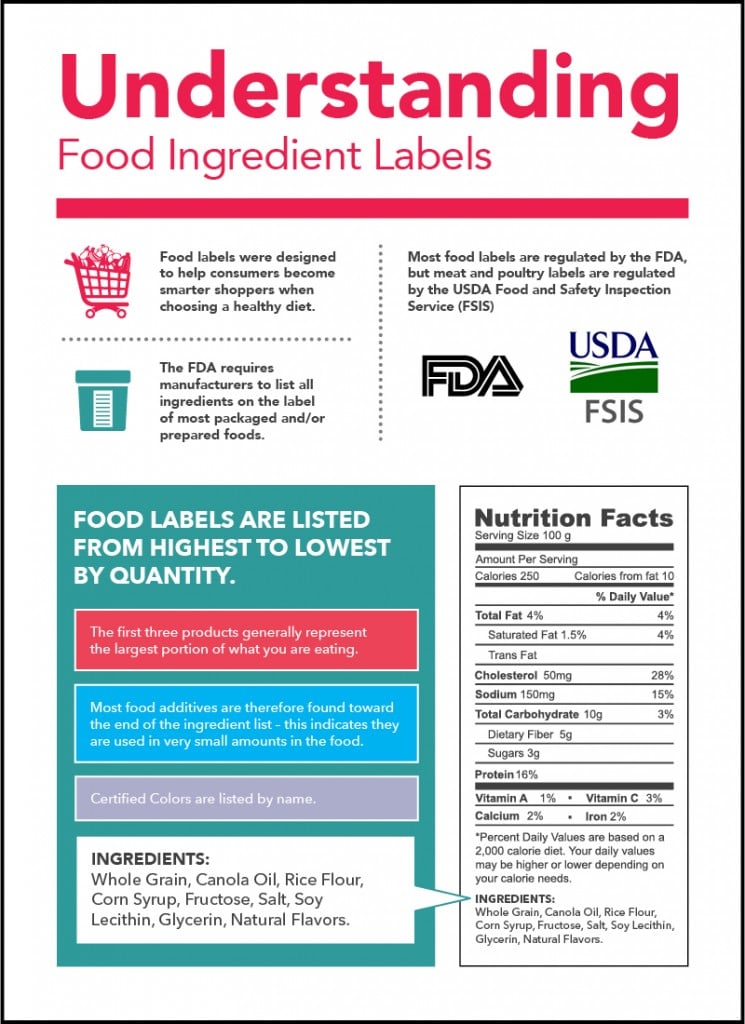
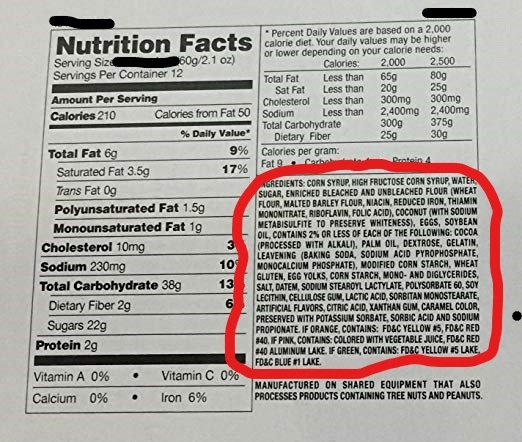
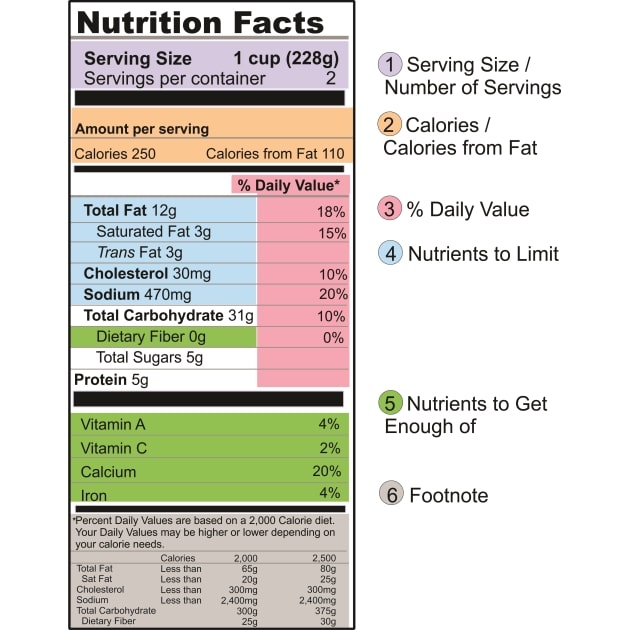
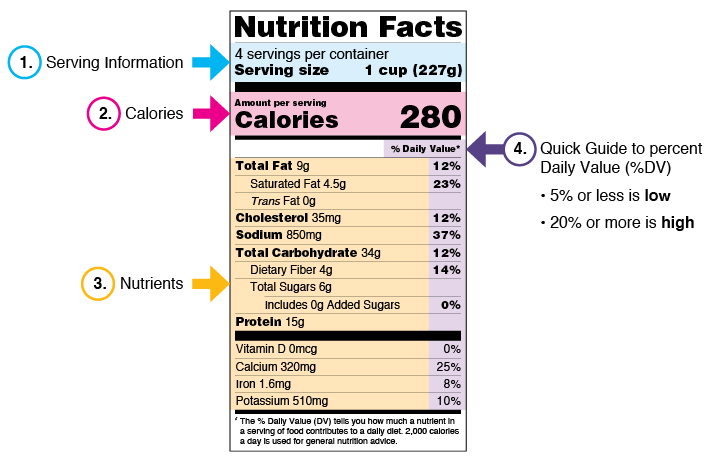
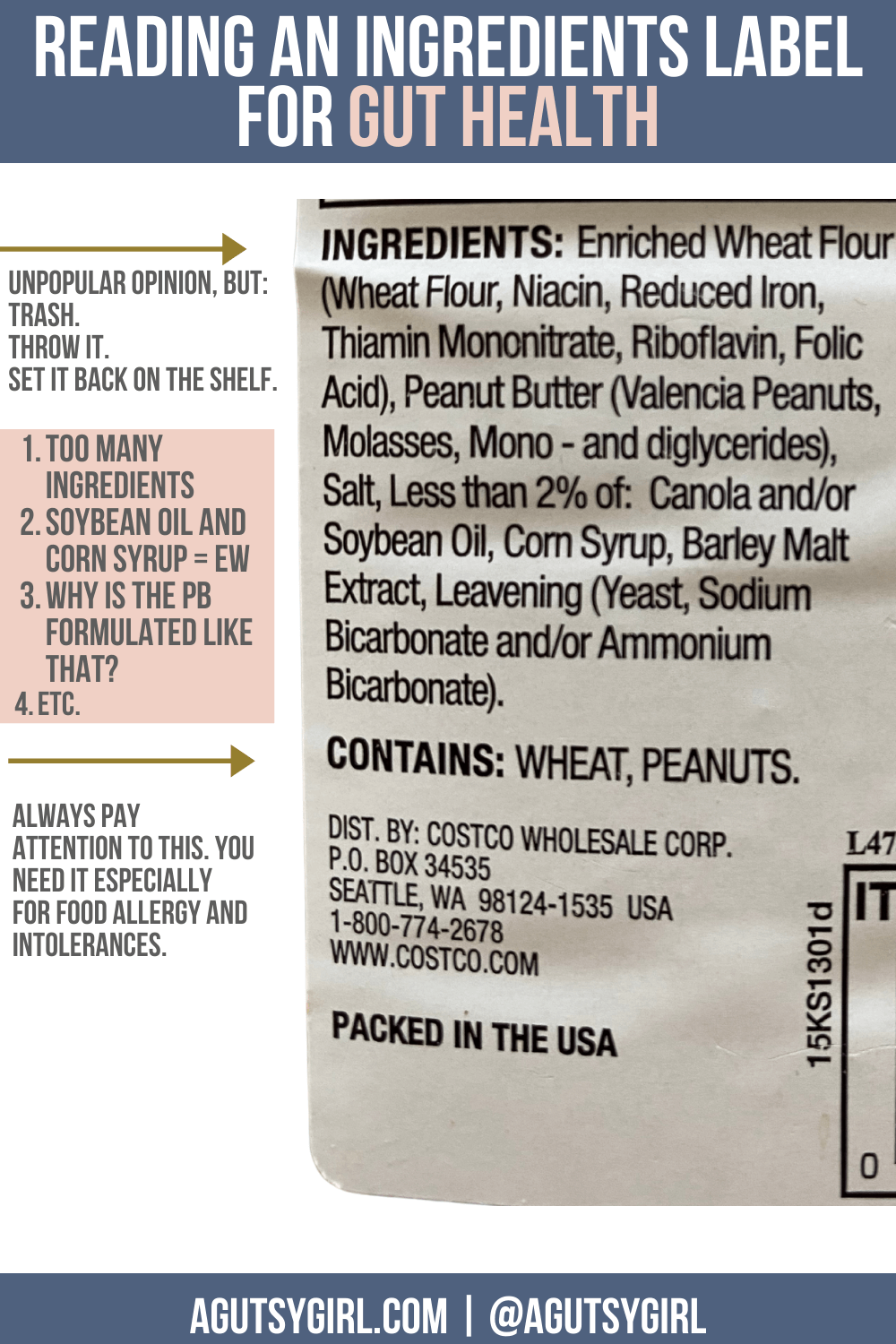
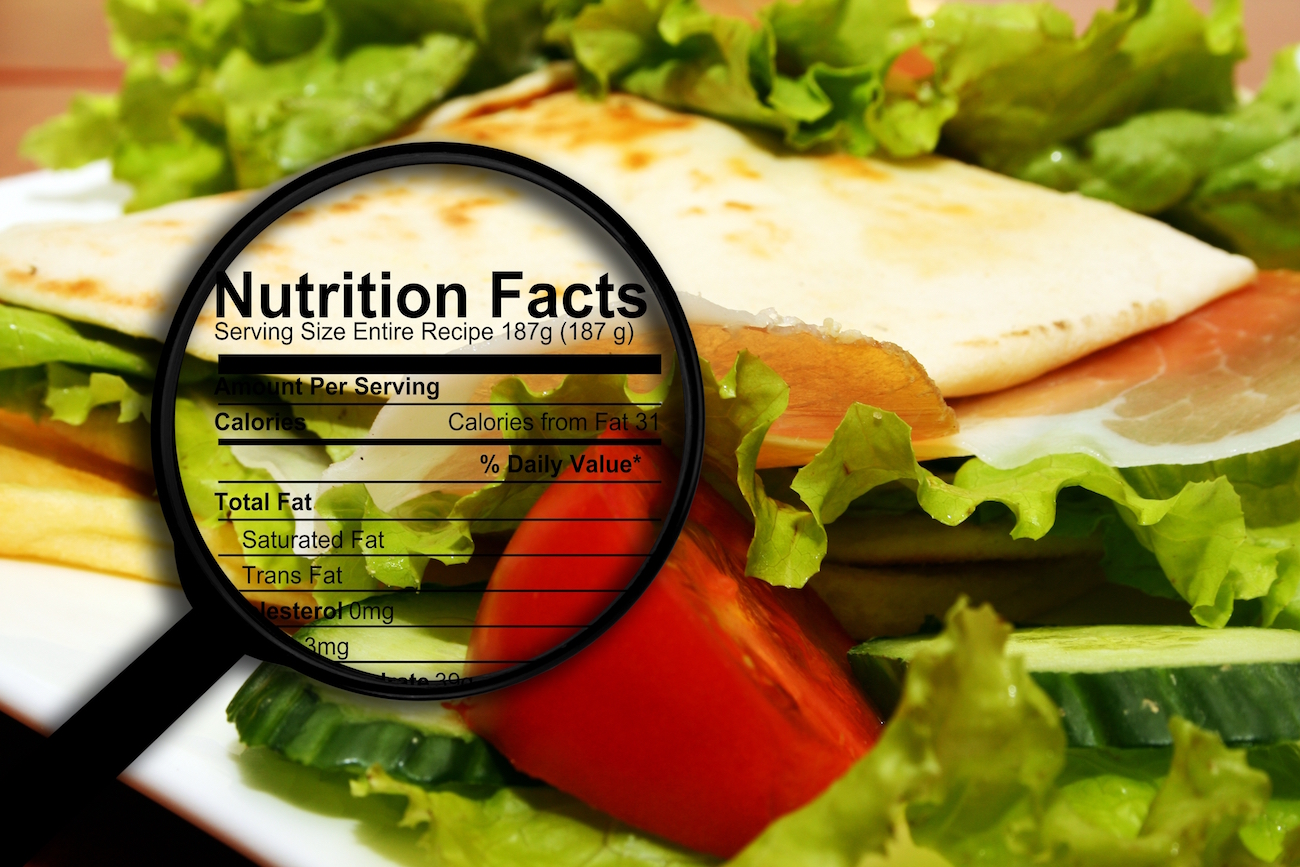


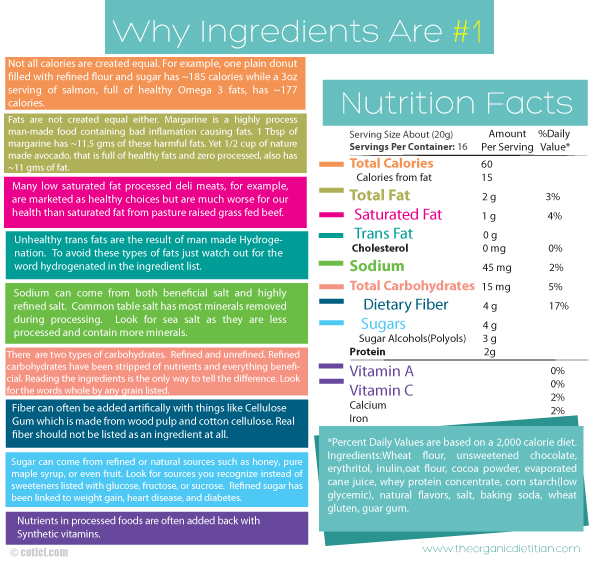

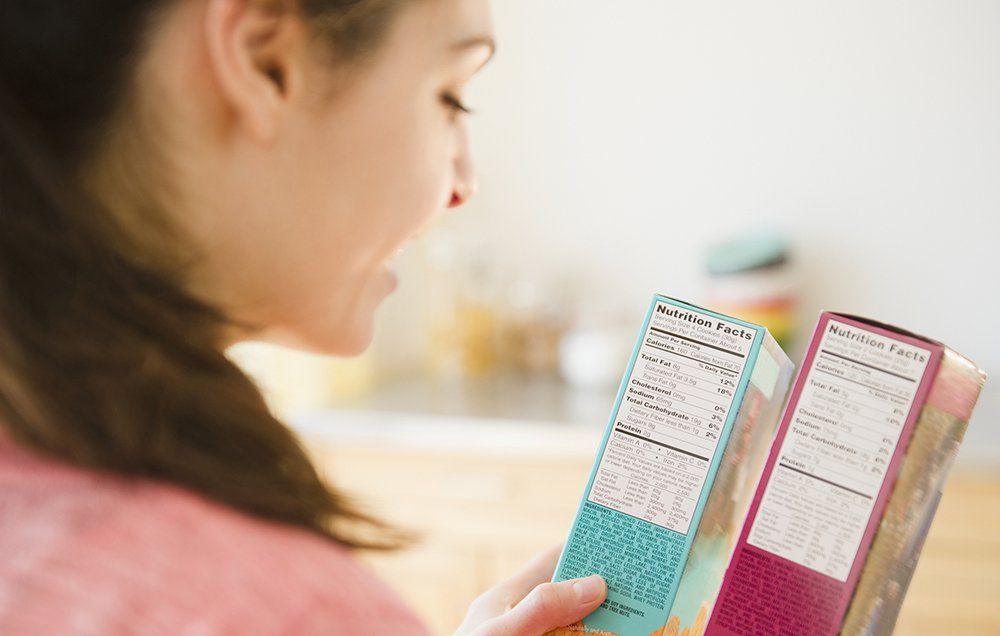


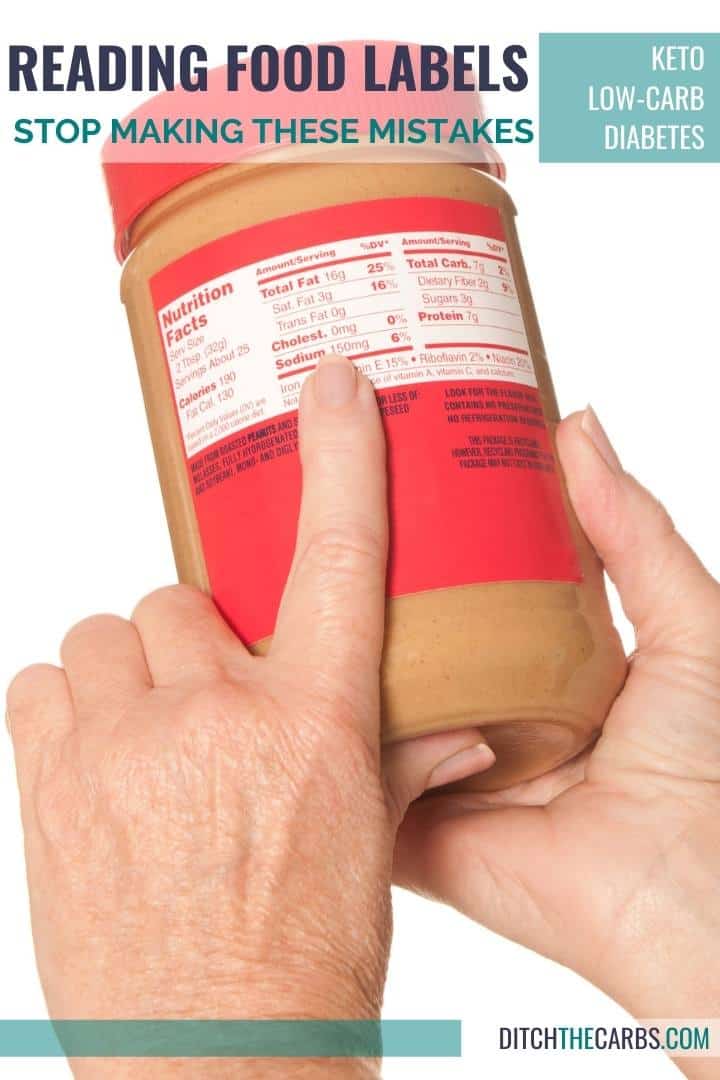
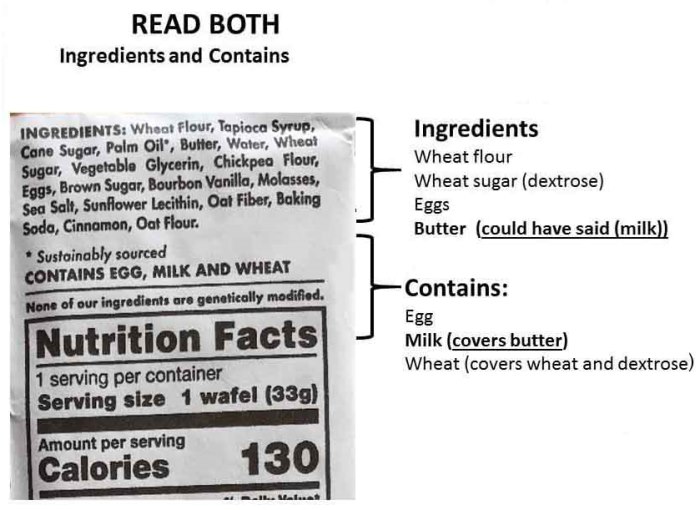


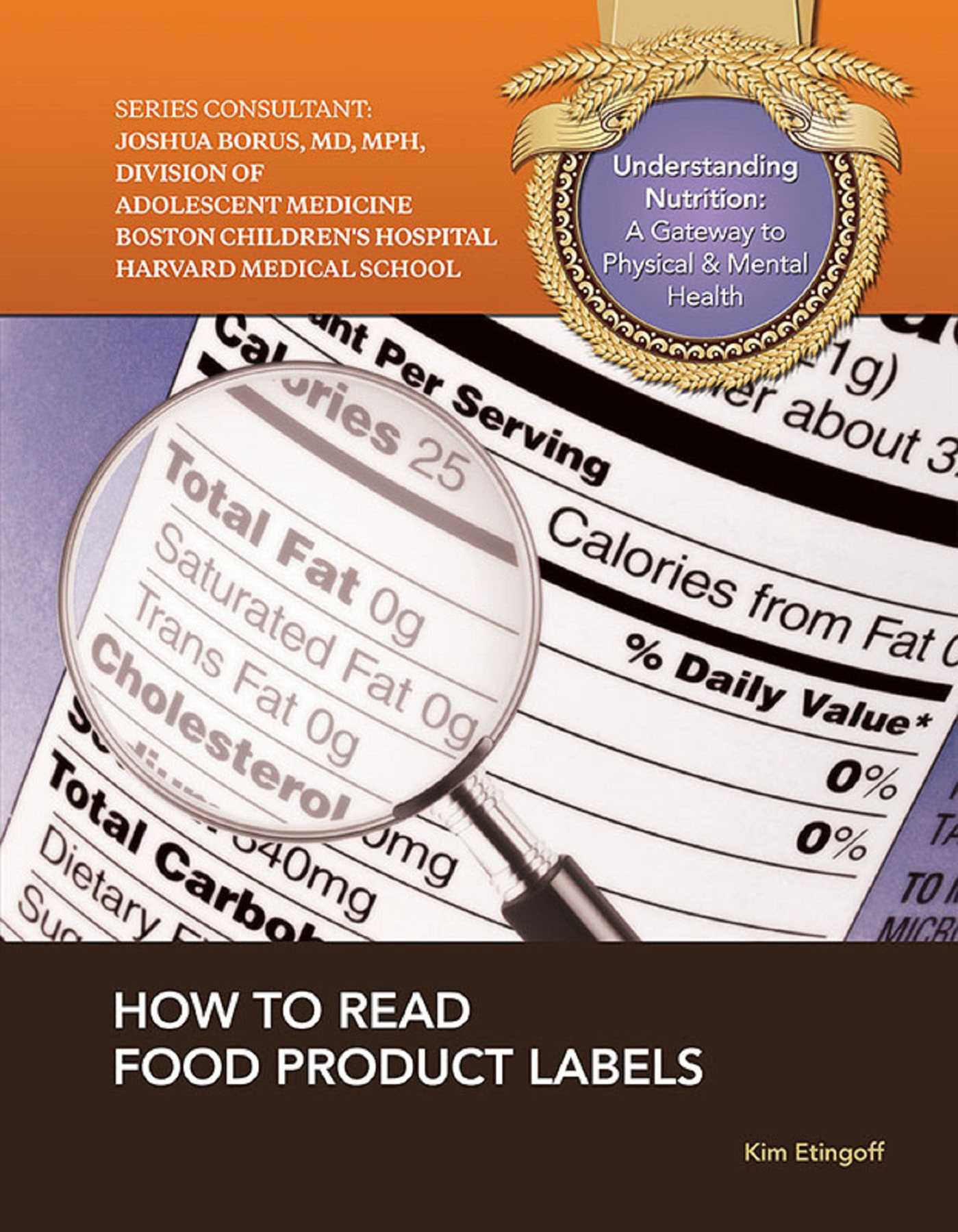
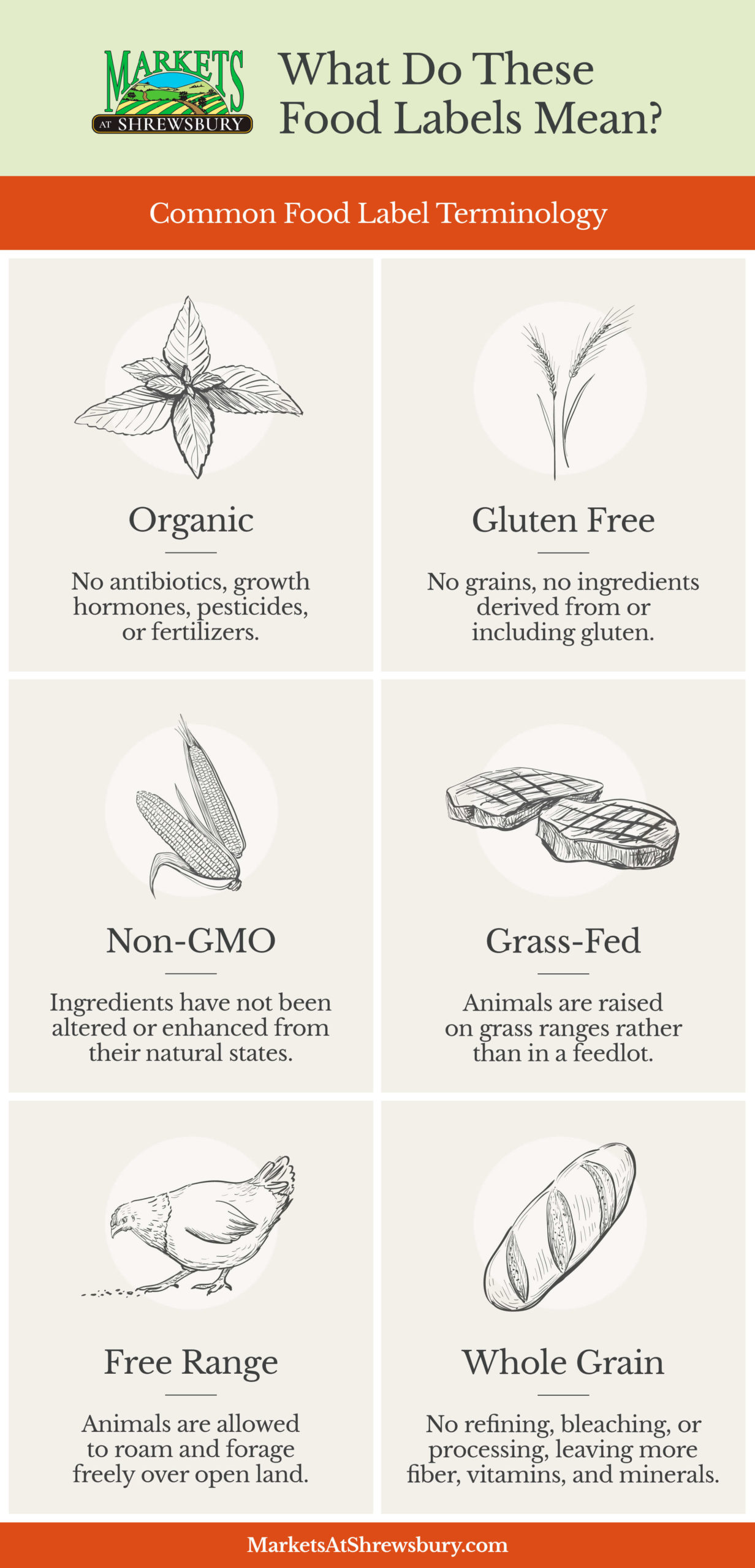


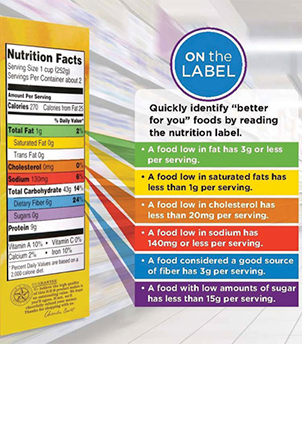

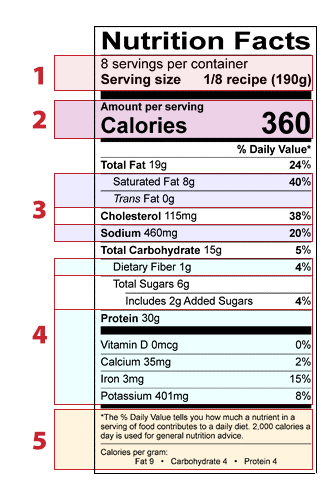


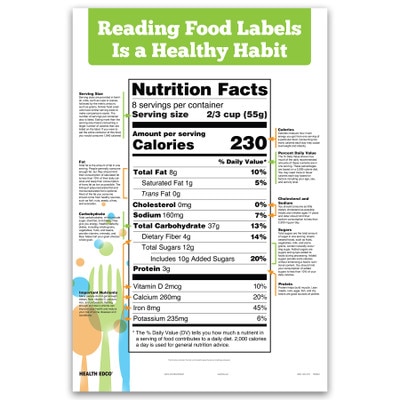
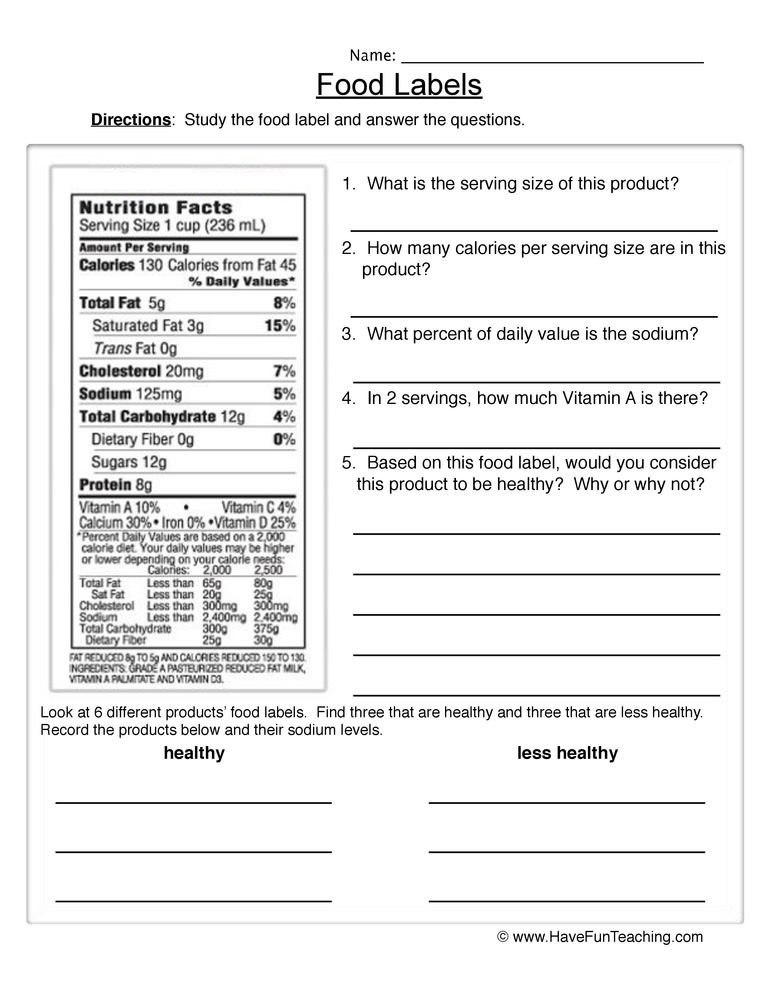









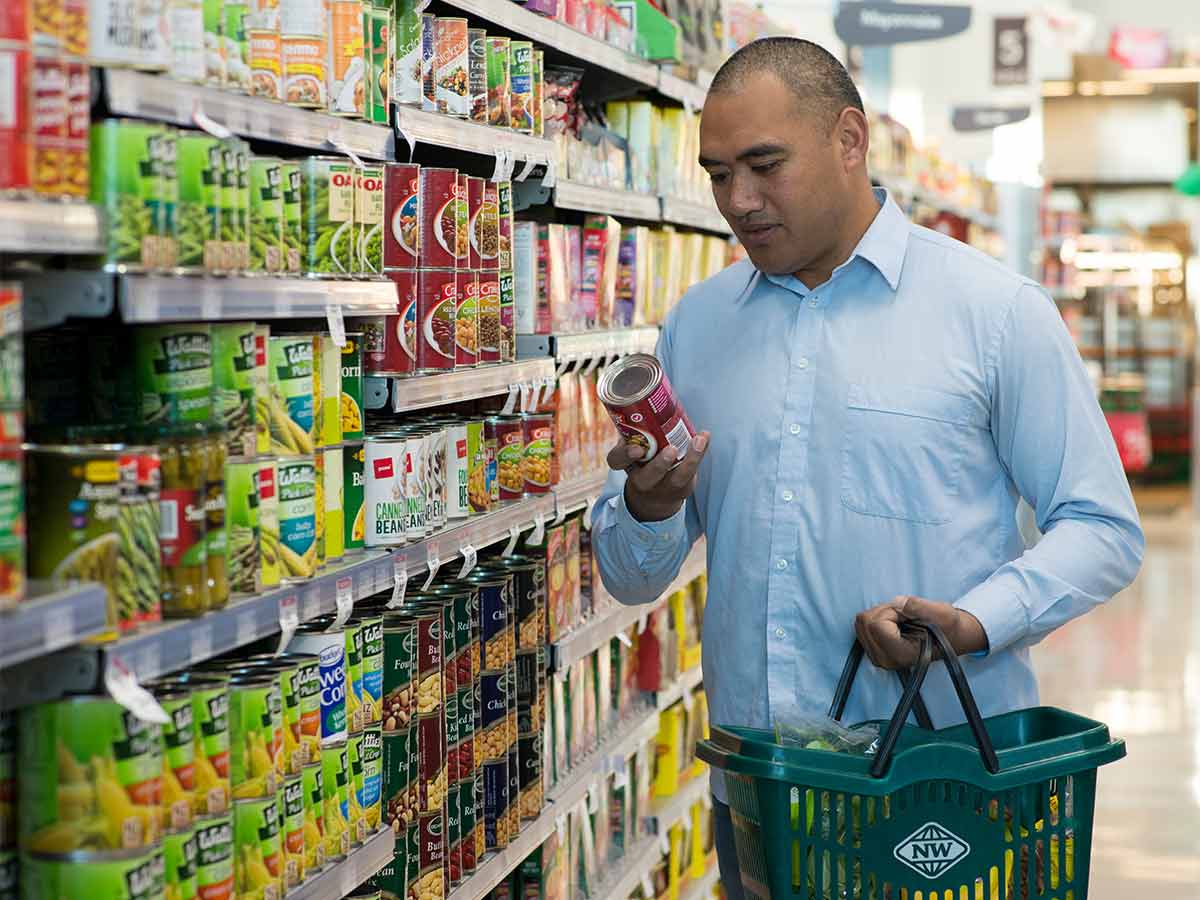
Post a Comment for "45 how to read ingredient labels on foods"